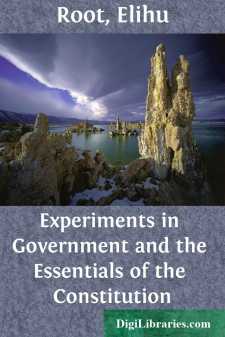Categories
- Antiques & Collectibles 13
- Architecture 36
- Art 48
- Bibles 22
- Biography & Autobiography 815
- Body, Mind & Spirit 144
- Business & Economics 28
- Children's Books 18
- Children's Fiction 14
- Computers 4
- Cooking 94
- Crafts & Hobbies 4
- Drama 346
- Education 58
- Family & Relationships 59
- Fiction 11829
- Games 19
- Gardening 17
- Health & Fitness 34
- History 1378
- House & Home 1
- Humor 147
- Juvenile Fiction 1873
- Juvenile Nonfiction 202
- Language Arts & Disciplines 89
- Law 16
- Literary Collections 686
- Literary Criticism 179
- Mathematics 13
- Medical 41
- Music 40
- Nature 179
- Non-Classifiable 1768
- Performing Arts 7
- Periodicals 1453
- Philosophy 65
- Photography 2
- Poetry 896
- Political Science 203
- Psychology 44
- Reference 154
- Religion 515
- Science 126
- Self-Help 85
- Social Science 82
- Sports & Recreation 34
- Study Aids 3
- Technology & Engineering 59
- Transportation 23
- Travel 463
- True Crime 29
Our website is made possible by displaying online advertisements to our visitors.
Please consider supporting us by disabling your ad blocker.
Experiments in Government and the Essentials of the Constitution
by: Elihu Root
Description:
Excerpt
I - EXPERIMENTS
There are two separate processes going on among the civilized nations at the present time. One is an assault by socialism against the individualism which underlies the social system of western civilization. The other is an assault against existing institutions upon the ground that they do not adequately protect and develop the existing social order. It is of this latter process in our own country that I wish to speak, and I assume an agreement, that the right of individual liberty and the inseparable right of private property which lie at the foundation of our modern civilization ought to be maintained.
The conditions of life in America have changed very much since the Constitution of the United States was adopted. In 1787 each state entering into the Federal Union had preserved the separate organic life of the original colony. Each had its center of social and business and political life. Each was separated from the others by the barriers of slow and difficult communication. In a vast territory, without railroads or steamships or telegraph or telephone, each community lived within itself.
Now, there has been a general social and industrial rearrangement. Production and commerce pay no attention to state lines. The life of the country is no longer grouped about state capitals, but about the great centers of continental production and trade. The organic growth which must ultimately determine the form of institutions has been away from the mere union of states towards the union of individuals in the relation of national citizenship.
The same causes have greatly reduced the independence of personal and family life. In the eighteenth century life was simple. The producer and consumer were near together and could find each other. Every one who had an equivalent to give in property or service could readily secure the support of himself and his family without asking anything from government except the preservation of order. To-day almost all Americans are dependent upon the action of a great number of other persons mostly unknown. About half of our people are crowded into the cities and large towns. Their food, clothes, fuel, light, waterвÐâall come from distant sources, of which they are in the main ignorant, through a vast, complicated machinery of production and distribution with which they have little direct relation. If anything occurs to interfere with the working of the machinery, the consumer is individually helpless. To be certain that he and his family may continue to live he must seek the power of combination with others, and in the end he inevitably calls upon that great combination of all citizens which we call government to do something more than merely keep the peaceвÐâto regulate the machinery of production and distribution and safeguard it from interference so that it shall continue to work.
A similar change has taken place in the conditions under which a great part of our people engage in the industries by which they get their living. Under comparatively simple industrial conditions the relation between employer and employee was mainly a relation of individual to individual, with individual freedom of contract and freedom of opportunity essential to equality in the commerce of life....


